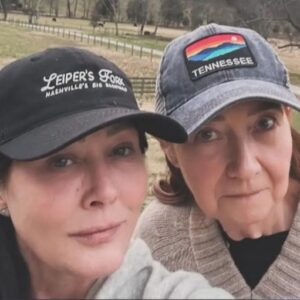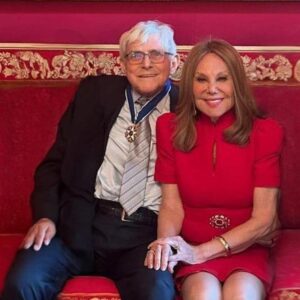In this engaging comedy, Max Baer Jr. portrays Jethro Bodine, Jed’s cousin Pearl’s son. The role demanded the depiction of a naive, slightly simple-minded man, which Baer Jr. executed flawlessly. His line “five gozinta five one times, five gozinta ten two times” became a well-loved instance of his character’s simplistic multiplication skills.
“Beverly Hillbillies” skyrocketed in popularity following its premiere in 1962, climbing swiftly to the top of IMDB’s charts within its first few weeks. Audiences were smitten, leading the show to air 274 episodes across nine seasons for an impressive 11-year run until its conclusion in 1971. The sitcom’s success was reflected in its four Emmy nominations and a Golden Globe award for Best TV Comedy in 1964.

Baer Jr.’s representation of Jethro Bodine was so convincing, audiences were often left questioning if the character was indeed a real person. This was aided by Baer Jr’s adept utilization of rustic vocabulary, which he borrowed from the records of Andy Griffith and Jonathan Winters. His depiction of stupidity served as a comedic focal point for the show, leaving audiences laughing out loud.
Baer Jr.’s pathway to his career-defining role was far from simple. Born in Oakland, he had his first experience on stage in 1949, featuring in “Goldilocks and the Three Bears” at the Blackpool Pavilion in England. After graduating from Santa Clara University with a BBA in 1959, he found himself in a Los Angeles parking lot when destiny played its cards.
According to People Magazine, Baer Jr. had ridden his motorcycle to Los Angeles post-graduation when he reminded Warner Bros. executive James Garner of his father, Max Baer. Despite a few failed attempts, Baer Jr. secured a one-year contract and began featuring on shows like “77 Sunset Strip,” “Maverick,” and “Hawaiian Eye.” This was the start of his successful acting journey, which ultimately led him to “The Beverly Hillbillies.”
Impact of Beverly Hillbillies on Baer Jr’s Life and Career

Securing the role of Jethro Bodine for a handsome payment of $1000 for the pilot and $500 for the subsequent episode, Baer Jr.’s life took a significant turn. “When you play a role like Jethro, it’s for other people to judge. You just do the best you can with the material you’re given, and then you try to add to it as much as you can,” Baer Jr. shared in an interview with Medium.
The sitcom soon won over American TV audiences, and Baer Jr.’s earnings rose to $800 per episode. However, it was not just the monetary benefits that he cherished; making people laugh brought him immense satisfaction. “Do well. I don’t care,” Baer Jr. said. “Laugh with or at me. Just laugh. Laughter indicates success. I’m unsure. It worked.”
Life Post Beverly Hillbillies

Once “The Beverly Hillbillies” came to a close in 1971, Baer Jr. found it challenging to break free from the image of Jethro. As a result, he had limited acting opportunities and only managed to land guest roles on shows like “Love,” “Fantasy Island,” and “Murder, She Wrote.”
Not one to back down from challenges, Baer Jr. turned his focus to production and direction. He helmed various projects, including two popular films, “Ode to Billie Joe” and “Macon County Line” in 1974. The latter film, which was made on a meager budget of $225,000, exceeded all expectations by earning $18.8 million in North America and $30 million globally.
Baer Jr’s Business Ventures

Using the wealth he had accumulated from his film ventures, Baer Jr. transitioned into a successful businessman. He acquired the rights to “The Beverly Hillbillies” name from CBS in 1991 and had ambitious plans for casinos, amusement parks, restaurants, and a cosmetic line. He purchased 24 acres in Carson Valley, Nevada, where he planned to construct a themed casino and amusement park.
Baer Jr.’s journey was not without hurdles. Numerous lawsuits prevented him from creating a significant TV series franchise. Baer Jr. even alleged that CBS had secretly collaborated with Jethro’s BBQ in Des Moines, which he claimed affected his TV revenues.
Personal Life

Baer Jr. also faced personal setbacks. In 2008, his girlfriend, 30-year-old California model Chere Rhodes, died from a gunshot wound to her chest, which was deemed a suicide. Three months after the tragedy, Baer Jr. was haunted by the blood he had seen at the scene.
Despite the trials and tribulations, Baer Jr. remained determined and optimistic. “We Baers never achieved our goals. As everyone knows, Dad wanted to act but became a boxer. I wanted to be a lawyer but perform. Exposure ensures future employment. I want to demonstrate my versatility,” Baer Jr. told Closer.




